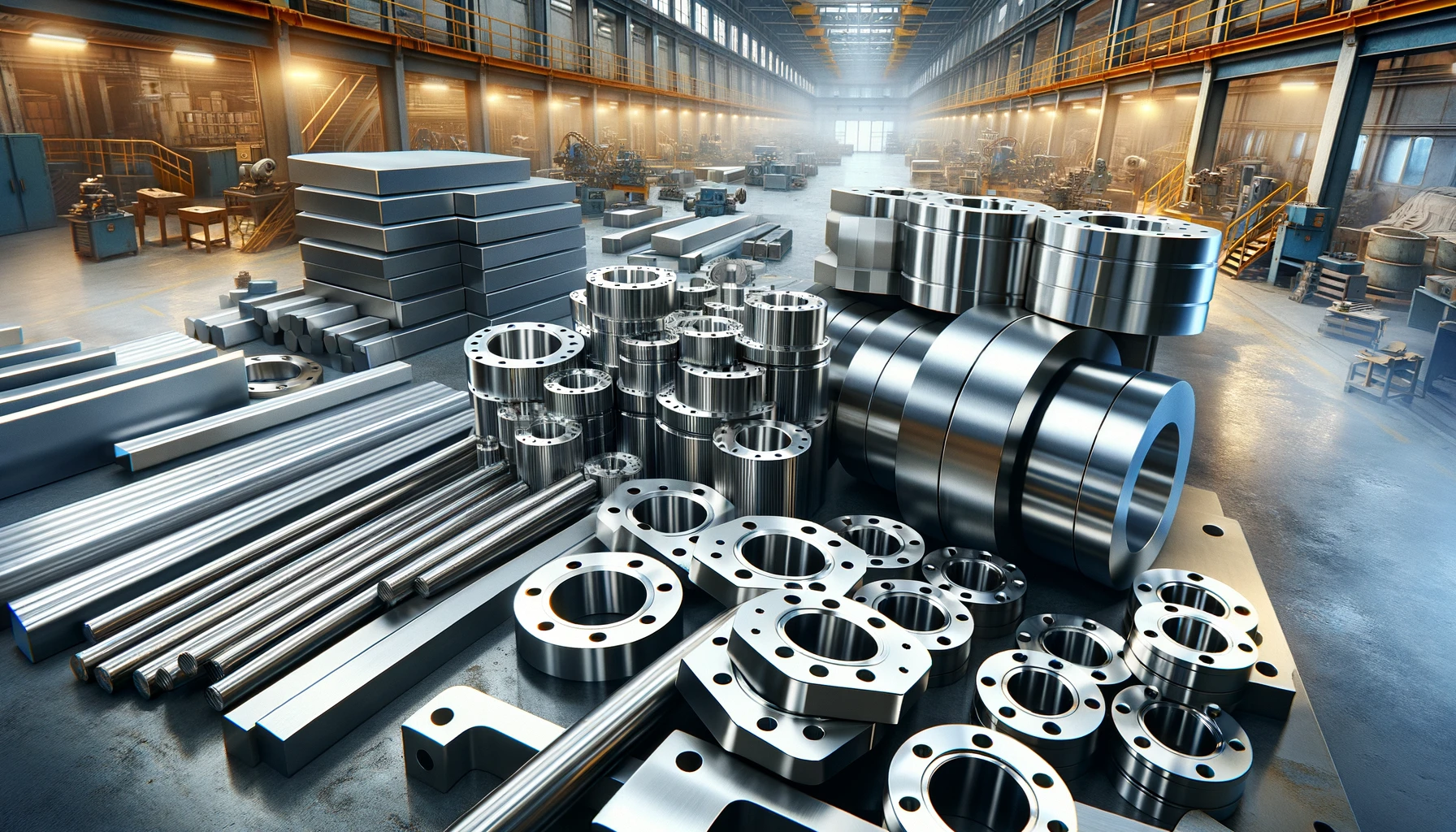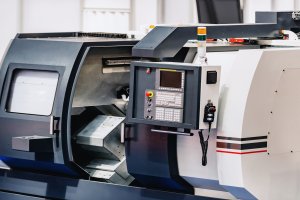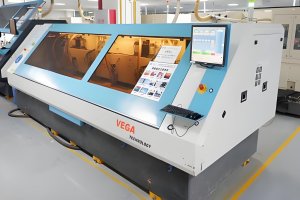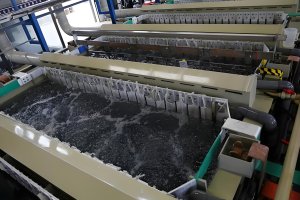The CNC machining of stainless steel flanges requires a profound understanding of the material’s properties to ensure high-quality, precision outcomes. This article delves into the critical material properties that impact the machining process and provides strategies to optimize CNC operations for stainless steel flanges.
China Online CNC Machining Services – Want.net
What Key Material Properties Affect CNC Machining of Stainless Steel Flanges?
Stainless steel is renowned for its strength, durability, and corrosion resistance, making it an ideal choice for flange manufacturing. The key properties that significantly affect its machinability include hardness, tensile strength, and corrosion resistance:
- Hardness: Affects tool wear and machine settings. Harder materials require more robust tools and precise machining conditions.
- Tensile Strength: High tensile strength materials can be challenging to machine and may require specific adjustments in cutting speeds and feeds to prevent tool breakage.
- Corrosion Resistance: While beneficial for the end product, high corrosion resistance necessitates the use of appropriate coolants and machining environments to maintain material integrity during the machining process.
Understanding these properties helps in selecting the right CNC machining strategies and equipment, ensuring the production of high-quality stainless steel flanges.
How Does Stainless Steel’s Hardness Influence Machining Techniques?
The hardness of stainless steel varies across grades, influencing the choice of cutting tools and machining parameters. For instance:
- 304 Stainless Steel: Known for good machinability but requires sharp tools and optimal cutting conditions to minimize work hardening.
- 316 Stainless Steel: Slightly tougher than 304, necessitating more robust machining strategies to handle its increased hardness.
Tool selection is critical; carbide tools are generally preferred for their hardness and durability, capable of maintaining a sharp cutting edge even at high temperatures.
Why is Corrosion Resistance Important in Choosing Machining Parameters for Stainless Steel Flanges?
Corrosion resistance is one of the paramount virtues of stainless steel, particularly in applications where flanges are exposed to corrosive environments. Machining parameters must be chosen to preserve these properties:
- Coolants: Use of coolants that inhibit corrosion is essential, as they help maintain the material’s integrity during and after the machining process.
- Machining Environment: The environment should be controlled to avoid any exposure to elements that might induce corrosion.
What Challenges Do Stainless Steel’s High-Toughness Properties Pose to CNC Machining?
Stainless steel’s toughness can lead to challenges such as increased tool wear and the potential for deformation during machining:
- Tool Pressure: High toughness requires tools that can withstand significant cutting forces.
- Machining Speeds: Adjustments in machining speeds and feeds are crucial to manage the toughness and minimize the risk of tool failure.
How Can Heat Treatment Processes Optimize the Machinability of Stainless Steel Flanges?
Heat treatment can significantly enhance the machinability of stainless steel by altering its microstructure:
- Annealing: Softens the metal, making it easier to machine.
- Stress Relieving: Reduces residual stresses from previous machining operations, improving the overall machining quality.
What Advances in CNC Technology Are Particularly Beneficial for Machining Stainless Steel?
Recent advances in CNC technology have been game-changing for machining stainless steel:
- High-Pressure Coolant Systems: These systems effectively cool the cutting area, reducing thermal effects and improving tool life.
- Multi-Axis Machining Centers: Allow for complex flange shapes to be machined efficiently with minimal setups.
How Do Surface Properties Affect the CNC Machining of Stainless Steel Flanges, and How Can They Be Controlled?
The surface properties of machined flanges are crucial for their performance:
- Surface Finish: Achieving a high-quality surface finish is essential for sealing applications and can be optimized through precise control of machining parameters.
- Surface Integrity: Maintaining the integrity of the surface is critical to ensure the flange’s functionality, particularly in high-pressure environments.
Conclusion
Choosing the right CNC machining strategies for stainless steel flanges requires a comprehensive understanding of the material properties and how they interact with machining processes. By considering these factors, manufacturers can optimize their production techniques, reduce costs, and improve the quality of their products, ensuring that the flanges meet the stringent requirements of their intended applications. This guide provides the foundational knowledge needed to navigate the complexities of machining stainless steel and to harness the full potential of CNC technology in manufacturing high-performance flanges.
Other Articles You Might Enjoy
- Why Is CNC Machining the Best Option for Manufacturing Stainless Steel Flanges?
CNC machining is not just a technological evolution; it represents a fundamental shift in the manufacturing paradigm, especially for critical components like stainless steel flanges. This article further elaborates on…
- How to Choose the Right CNC Machining Equipment for Manufacturing Stainless Steel Flanges?
What Are the Primary Considerations When Selecting CNC Equipment for Stainless Steel? When selecting CNC equipment for stainless steel flanges, it's imperative to consider the unique properties of stainless steel…
- Precision CNC Machining of Stainless Steel: Innovations and Best Practices in Aerospace Machining
Introduction: Precision CNC Machining and the Use of Stainless Steel Precision Computer Numerical Control (CNC) machining, a vital technology within the manufacturing industry, uses pre-programmed software to guide machinery towards…
- Stainless Steel vs. Aluminum in CNC Machining: Pros and Cons
CNC Machining: The Role of Stainless Steel and Aluminum Computer Numerical Control (CNC) machining is a groundbreaking method in manufacturing that involves precise computer commands to manipulate and control tools…
- CNC Machining Material Showdown: 304 vs. 316 Stainless Steel
CNC Machining: An Overview And Importance of Material Selection Computer Numerical Control (CNC) machining is a manufacturing process that uses pre-programmed computer software to dictate the movement of factory tools…
- Stainless Steel vs. Aluminum in CNC Machining: Pros and Cons
CNC Machining and the Importance of Material Selection CNC machining, a pivotal manufacturing process in numerous industries, uses pre-programmed computer software to dictate the movement of factory tools and machinery.…






